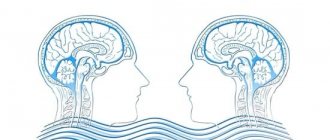Man is a being who constantly acts, as well as a being capable of learning. In this sense, it should be noted that no method has such a positive impact as a practical example. Thus, a paradigm refers specifically to a specific example, a specific pattern that is clear, visual and can serve as a guide for performing a specific action.
The example becomes a role model. The paradigm shows a specific model that serves as inspiration for performing other similar cases. A paradigm is also a way of classifying reality from the point of view of knowledge of this reality.
Two phases of the existence of science
Photo by Yeshi Kangrang on Unsplash
Thomas Kunt said that there are only two phases in which science can exist:
- revolutionary phase;
- normal science.
In the revolutionary phase there is great momentum and complete chaos - new discoveries are made that overturn previous knowledge, theories compete with each other, and scientists enter into debates because their arguments are often completely contradictory to each other.
Then some theories are accepted by the majority of the scientific community and the phase of “normal science” begins.
During this period, which is longer than the revolutionary phase, scientific knowledge is systematized, generalized, and the evidence base grows. The acquired knowledge is structured and interpreted.
Then some revolutionary discovery is made, a breakthrough that completely changes the idea of certain phenomena that dominated the scientific community. And again the revolutionary phase begins.
Thus, the constant development of science takes place. Paradigms are directly related to the “normal science” phase.
Basic approaches and paradigms in modern psychology
What is a paradigm
A paradigm is a set of general principles of knowledge that dominate at a given moment in time and are accepted by the majority of figures involved in a given scientific field.
The paradigm acts as a scientific standard. It is important to understand that a paradigm defines:
- what is considered the object and subject of research;
- what methods to use in the study;
- what is considered reliable knowledge;
- theory and laws of science;
- evidence base;
- practical application of scientific knowledge.
The paradigm expresses the general logic of scientific knowledge.
Paradigms in psychology
In modern psychological science, it is customary to distinguish three main paradigms that define the subject of psychology, methods of its study, principles of the scientific approach, criteria for the value of acquired knowledge, and much more.
Types of paradigms in psychology:
- natural science;
- humanitarian;
- practical.
Natural science paradigm
This paradigm presupposes a strict scientific approach to the study of psychological phenomena, the main principles of which are objectivism, determinism, rationalism and effectiveness. The science of the Enlightenment, Newtonian mechanics, and evolutionary theory served as role models.
Giphy
The subject of study is the forms of manifestation of mental life - behavior, relationships, results of human activity.
This paradigm is distinguished by a nomothetic scientific approach, that is, psychology should strive to establish general, objective and proven patterns of development and manifestation of mental phenomena. The dominant approach is the structural one, in which the whole is a collection of its parts.
The goal of this paradigm is to understand the objective laws of psychology, their typology and the establishment of logical connections. The evidence of these connections should be determined by the possibility of repeated repetition and mathematical statistics.
Research methods must be objective: observation, experiment, theoretical hypotheses and constructs. The researcher himself must be impartial, detached, and the person acts only as an object of research.
Humanitarian paradigm
At the end of the 19th century, a serious crisis arose, expressed in the realization that it was impossible to study the sciences of the soul and culture using the methods used in the natural and exact sciences. Exact sciences have shown their inconsistency in the study of certain aspects of the psyche.
Photo by Alex Green: Pexels
This is how a humanitarian paradigm emerged, largely based on Kant’s ideas about the limitations of natural scientific knowledge about the soul and God.
The subject of the humanitarian paradigm began to be the mental life of the individual, in all its integrity, uniqueness and uniqueness, which cannot be reduced to the sum of individual manifestations. The whole is always greater than the sum of its parts.
This paradigm is characterized by an ideographic approach, which involves the study of individual characteristics; it contains a lot of subjectivity, systematicity, and intuitiveness.
The purpose of the study is not objective, statistically proven patterns, but the inner world of a particular person, his life path, individuality and integrity.
Study methods have also become subjective: empathic listening, hermeneutics, intuitiveness, presuppositionlessness. Communication between the researcher and the subject was equal, suggesting emotional involvement and interaction.
The humanitarian paradigm operates with such concepts as uniqueness, uniqueness of the individual, her spiritual development, self-actualization, and her personal experience. This paradigm assumes different points of view of truth.
Image by Gerd Altmann from Pixabay
Practical paradigm
This paradigm is based not so much on the study of psychological phenomena as on working with them. That is, psychology, as a science, must not only study the psyche, but also develop methods of working with it, change and transform the relationships that a person builds, help her adapt and change the conditions in which she lives.
The prerequisites for the development of the practical paradigm were psychotherapy, educational psychology, psychology of abnormal development, and much more.
The task of psychology is the practical application of knowledge about a person. How science can help a person change his ideas about the world, about himself, about his place in this world, and also about how to change his life for the better. This is the main goal within the practical paradigm.
Characteristics
In foreign literature you can find the answer to the question, what is a paradigm? Sociological literature with its own terms is presented for public consideration and judgment. Different authors interpret the word “paradigm” differently. Eg. E. Giddens considers it exclusively as paradigmatic scientific theories that were previously put forward by Weber, Marx, Comte and Durkheim. Along with this, we can safely consider and continue to conduct an active dialogue about the fact that in sociology this term is also considered from the point of view of the classical concept and from the point of view of the modern one. Most foreign sociologists say that eras change and each of them has its own characteristics and it is impossible to explain these social processes using the so-called theoretical construction of the judgments of scientists of the last century.
We can safely say that the picture of social reality that he created constitutes a special idea of society, and it acts as a so-called sociological paradigm. You can argue for a long time and put forward a number of theories that will help you understand what can be called a paradigm. Only one thing is clear: in different sciences the meaning of this word will change differently and the word is unlikely to ever go out of common use. Scientists will argue and prove, but the most important thing is that the word will remain, which has already been strengthened not only in psychology, but also in sociology. It is unknown what other theories will be put forward by modern scientists, but active discussions and clarification continue to be held as to what is worth putting into this concept and what is not. Time flies quickly, but “paradigm” remains as the main characteristic and fundamental term.
The problem of paradigms in psychology
The psyche and mental phenomena are a complex object of study. This is what determines the complexity and inconsistency of research methods. And it is still impossible to give an exact answer about which paradigm currently dominates in psychology. Thomas Kunt himself could not do this.
Photo by Michelangelo Buonarroti: Pexels
There are several approaches to understanding paradigms in psychology:
- psychology is a pre-paradigm science, that is, it is still at a stage where no paradigm has yet been defined;
- psychology is a paradigmatic science, since, despite many contradictory approaches, a common concept has been achieved in the main, central categories (psyche, mental phenomena, and so on);
- psychology is a multi-paradigm science in which, due to the specificity and versatility of the subjects of its study, several paradigms exist simultaneously;
- Psychology is a non-paradigm science in which, in principle, the dominance of one paradigm is impossible, and the logic of development, built on the analysis of natural sciences, is not applicable to it at all.
Philosophical aspect of methodology.
METHODOLOGY is the doctrine of methods of organizing and constructing theoretical and practical human activity. Philosophy reveals the socio-historical dependence of people's repertoires and means of activity on the level of their development and on the nature of the problems they solve. Methodology Within the boundaries of serving standard activity programs, the meaning of Methodology is reduced to ensuring their normative and rational construction. Socio-historical and cultural conditionality Methodology is revealed in the course of changes in its foundations, as well as in the processes of developing new methodological tools. A significant role in the development of philosophical problems of Methodology was played by Socrates, Plato, Aristotle, F. Bacon, Descartes, Kant, Schelling, Hegel, etc. A specific approach to the problem is offered by system-thought-activity Methodology. The complexity of the relationship between Methodology and philosophy, as is known, was determined by the fact that Methodology can be interpreted from the position of philosophy, and philosophy can be characterized within the framework of a certain generalized methodology While science was dominated by faith in unshakable cognitive standards, philosophy was reconstructed in the categorial-conceptual complexes of a general methodology of cognition. But since in the 20th century. cognitive standards revealed their own dependence on the process of cognition itself, on the development of the cognizing subject and on the type of cognizable objects, to the extent that socio-historical, human, personal, cultural dimensions were revealed in the foundations of the Methodology, their fundamentally different philosophical understanding was required. In this regard, the Methodology revealed its conventionality in the context of constantly reproducing repertoires and procedures of human activity. In the development of modern methodology, an increasing place is occupied by issues related to the dynamics of cognitive problems, the cultural and historical nature of cognitive means, the variability of categories and concepts, the formation of new cognitive attitudes, etc. These questions are in one way or another associated with the inclusion of philosophical ideas in the structure of the Methodology. The methodological work of philosophy is not limited to the analysis of cognition; it examines the patterns of activity created by people to renew and reproduce social existence. The task of the Methodology is to clarify, construct and transform patterns of activity integrated into the everyday experience of human individuals. Methodology becomes an important point of understanding and rethinking modern cultural issues
The Methodology's attention to the patterns of everyday behavior and thinking of people is explained by the fact that in their everyday experience, traditions and standards of activity cease to play their former role. The actions and deeds of people, their communication and thinking lose the natural features of stereotypical acts. The automatisms of human existence are giving way to the determining role of an ever-increasing set of original guidelines developed by people in the processes of problematization, programming, design and solving specific life problems
The implementation of new unconventional activity patterns is becoming the lot of an increasing number of people. The effectiveness of this work is a matter of the existence and renewal of modern culture. The latter lives and transforms to a large extent due to the fact that, comprehending its own methodological nature, it cultivates the social and humanitarian dimensions of Methodology.











